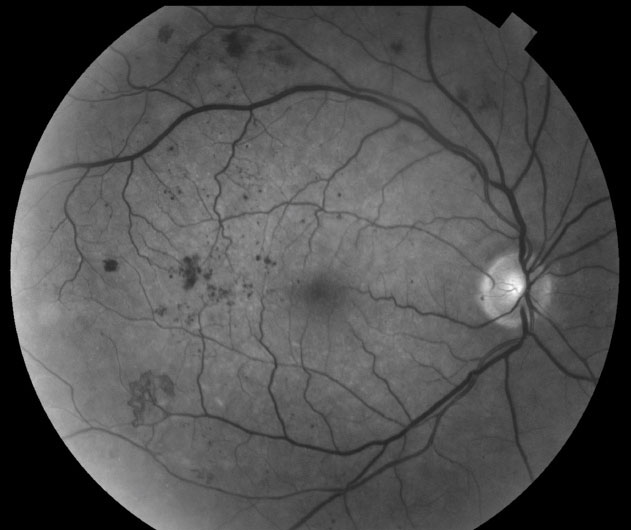 |
Despite their likely supportive role in treating dry eye, omega-3 fatty acid supplements have yet to show evidence of an effect in diabetic retinopathy. Photo: Steve Ferrucci, OD. Click image to enlarge. |
The potential of omega-3 fatty acids in treating diabetic eye disease has mainly been demonstrated in experimental models, in which the protective effects against diabetic retinopathy (DR) and diabetic maculopathy were mediated through antioxidant and anti-angiogenesis pathways. However, the duration of exposure needed to convey these beneficial effects is uncertain. Researchers at the University of Oxford performed a sub-study of data from the A Study of Cardiovascular Events iN Diabetes (ASCEND) trial to provide a large, well-conducted and prospective test of these potential benefits. Their findings, which were published earlier this week in Ophthalmology, determined that there was no statistically significant effect of omega-3 fatty acid allocation associated with lower incidence of referable eye disease. There were also no pre-specified subgroups that appeared to benefit proportionally more or less.
ASCEND was a double-blind, randomized, placebo-controlled trial of 1g omega-3 fatty acids (containing 460mg eicosapentaenoic acid and 380mg docosahexaenoic acid) daily for the primary prevention of serious cardiovascular events, in 15,480 UK adults at least 40 years of age, with diabetes. Linkage data were obtained for 7,360 participants (48% of those who were randomized in ASCEND). The study average adherence with omega-3 FAs was 79.3%, but adherence did decline in the later years of follow-up and varied by other factors.
During the mean follow-up of 6.5 years, 14.8% of patients had a referable disease event in the omega-3 fatty acid group, compared with 13.9% in the placebo group (rate ratio 1.07). There were no significant effects of assignment to active omega-3 fatty acids compared with the placebo on worsening visual acuity equivalent to a loss of 15 or more ETDRS letters (35.0% vs. 36.9%, respectively [rate ratio 0.93]). There were no statistically significant between-group differences in the proportion of events for either of the secondary or tertiary outcomes, which included referable disease stratified by baseline DR severity, DR progression, incident diabetic maculopathy or duplex retinopathy grades at the final eye screening record.
“ASCEND-Eye has several strengths that facilitated a robust assessment of the effects of omega-3 fatty acids on DR, including its randomized design, a large number of participants and a long duration of near-complete follow-up,” the authors wrote in their paper.
Sammons EL, Buck G, Bowman LJ, et al.; on behalf of the ASCEND Study Collaborative Group. ASCEND-Eye: Effects of omega-3 fatty acids on diabetic retinopathy. Ophthalmology. December 3, 2023. [Epub ahead of print]. |

